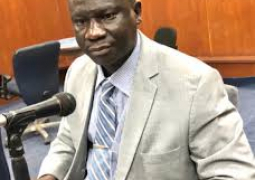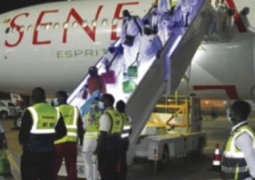
Moreover, he indicated that leaders can end AIDS as a public health threat only by overcoming it everywhere for everyone.
Pa Ousman Bah was speaking on Friday at a presser designed to update the public on the forthcoming World AIDS Day Commemoration in the country, which is observed globally on December 1st.
In The Gambia, the event to be held on the theme ‘take the right path’ will be celebrated on December 7th in Tanji in West Coast Region.
While reminding the public that there is no cure for HIV infection, Bah, however, maintained that with access to effective HIV prevention, diagnosis, treatment and care including for opportunistic infections, HIV infection has become a manageable chronic health condition, enabling people living with it to live long and healthy lives.
He referenced the executive director of UNAIDS, who said that despite huge progress made in the HIV response, human rights violations are still preventing the world from ending AIDS.
The UNAIDS report, he revealed, shows that the world can meet the agreed goal of ending AIDS as a public health threat by 2030, but only ‘if leaders protect the human rights of those living with and at risk of HIV.’
Giving an update on the HIV situation in The Gambia, Bah revealed that the national sentinel surveillance was conducted among pregnant women at 12 sites across the country. Although, the overall HIV prevalence in the population is relatively low, the data from 2023 indicates that 1.3% of the population is HIV positive.
However, he added that there is a disproportionately high prevalence rates in Basse (2.0), closely followed by Bansang and Brikama (1.6%) respectively.
On the global updates, Bah revealed that HIV remains a major global public health issue, having claimed an estimated 42.3 million lives to date, adding that of the 39.9 million people living with the virus, 65% are in Africa region.
“9.3 million people are still not accessing life-saving treatment. Last year, 630,000 people died of AIDS-related illnesses and 1.3 million people around the globe newly acquired the disease. Every day in 2023, 570 young women and girls aged between 15 and 24 acquired HIV.”
The NACP boss also talked about the progress made in their three 95’s approach, which includes 1st, 95 = 60% success for those diagnosed; 2nd, 95 = 65% for those on treatment and 3rd, 95 = 61% of those on treatment were virally suppressed.
He also spoke about current response to HIV in the country, which he said, includes 24 antiretroviral treatment centres. Eighty-five prevention of Mother-to Child Transmission sites have been established across all health regions with a view to increasing access to HIV services.
While advocating for policies that ensure everyone has access to HIV prevention services and care, Bah equally called on community leaders to help in combating stigma and discrimination to ensure that everyone feels safe to access HIV services.
He equally called on civil society to help reach vulnerable, stigmatised and other difficult to reach populations and also speak out against stigma and discrimination.





